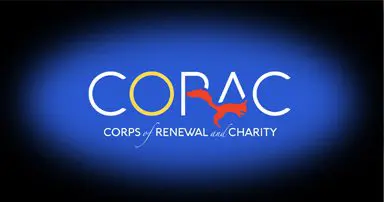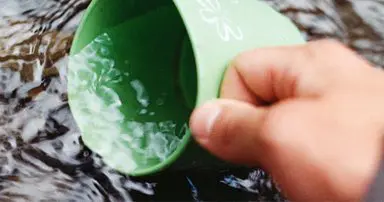Existing Resources
Be sure to explore the resources already available on the CORAC Sustainability site:
- What to do in a Water Emergency >
- Child/Personal Care, Laundry & Water Filtering Resources >
- Do-It-Yourself Water Filter >
- Water Treatment for Toxins >
Selecting a Gravity Filter
Here is a summary of recommendations on countertop gravity water filters.
First, you will need a housing. The stainless steel Berkey / Doulton / British Berkefeld housings are the most popular, readily available, and can utilize a variety of different filter options (discussed below).
There are different sizes of housings; for example the “Big Berkey” (2.25 gallon) is typically suitable for a 1-4 person household (using it for drinking and cooking water). Here is an overview to help you select the right size of housing >
Often, the UK-based Doulton / British Berkefeld branded housings are more cost-effective to acquire than the US-based Berkey branded housings. Here is the Doulton / British Berkefeld equivalent of the Big Berkey >
Other housings are available (typically made of plastic or ceramic) and can be homemade even from simple, cost-effective materials such as 2 lidded 5-gallon buckets. (For one component of a homemade filter system, you can buy activated charcoal in bulk here >
Housings can typically run multiple filters simultaneously (to increase the “throughput” of water production) but for many households only one filter need be used at a time. Plugs are available for the unused holes here >
A “sight glass” spigot is also very useful to monitor the level of water in the lower chamber (note that there are different lengths depending on which housing you have, available in plastic > or stainless steel >
Second, you will need to select a filter. You will likely want to filter four types of “threats:” large particulates (mud, soil, etc), organisms (viruses, bacteria, protozoa, etc), chemicals (including pesticides, pharmaceuticals, industrial chemicals, etc), and some metals (e.g. lead, fluoride). Each of the three latter “threats” requires a specific “media” to filter it; many filters combine several types of media into a single filter unit or “element.” Organisms and large particulates are typically filtered with a porous media that allows water to pass through, but not the bodies of the organisms / particulates. Chemicals are typically filtered with carbon – if this threat is a concern ensure your filter contains some sort of carbon media. Filters which address metals often have a separate / specific media which binds them inside the filter. The Doulton (aka British Berkefeld) ceramic “candle” type filters are based on a longstanding, proven design and are recommended for their simplicity and effectiveness. There are several types of Doulton candle filters:
- Sterasyl only filters organisms.
- Super Sterasyl filters organisms and chemicals
- Ultra Sterasyl (formerly known as Super Sterasyl ATC) filters organisms, chemicals, and heavy metals including lead >
- Ultra Fluoride filters everything the Ultra Sterasyl does plus fluoride >
Other filters such as the Berkey Black are very popular, though of a different design and not recommended by this author due to a record of lower reliability and inconsistent quality control.
It is critical to understand that no filter is perfect, and no filter will remove 100% of any contaminant. Different filters are effective to varying degrees against varying threats. For specific information, consult filter data sheets or contact the manufacturer.
Using A Gravity Filter
Understand that a countertop gravity filter is not an instant-production system due to the slow rate of flow (dripping) through the filter. Keep it filled in advance of your demand. Watch the level of water in both the upper and lower chamber, and learn to anticipate your needs. Understand that the lower (clean) reservoir can overflow if the supply from above outpaces your demand. Ceramic filters are not super fragile, but can crack if dropped or frozen when wet; don’t use a cracked filter. Any filter containing carbon (Super Sterasyl, Ultra Sterasyl, Ultra Fluoride) should be replaced every 6 months (stock spare filters accordingly). If the flow rate slows dramatically before replacement, simply scrub the gunk off the ceramic element in the upper chamber to restore better flow. Consider having a spare spigot and hole plugs on hand, as these can eventually leak or break.
Water Sources and Pre-Treatment
In general, you should use the purest source of water possible as the input to your filter system. If you have a choice between a source that’s likely to contain organisms vs chemicals, go with the organisms (easier to filter out). You can pre-treat the water in a variety of ways, as needed. For water with large particulates, run it through a homemade pre-filter (cheesecloth, sand trap, etc). When chemical threats are of significant concern, put the water through multiple stages of carbon filtration (e.g. a homemade filter with activated carbon, then a Doulton filter, or even a second Doulton filter). You can evaporate some chemicals, such as chlorine, by leaving a container uncovered on the counter for a day before you filter it. Distillation can also remove many chemical / heavy metal contaminants, but it will not remove chemicals which have a boiling point lower than water, and it also removes healthy minerals. Distillation is energy-intensive, so you will also need to consider how to accomplish it in a grid-down situation.
To establish a baseline for the condition of your water source, you can test it. A variety of test kits are available, depending on the threats you are concerned about. One example of a test kit is here >

























0 Comments